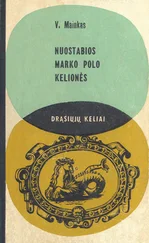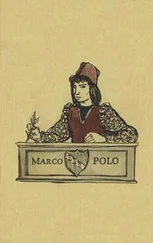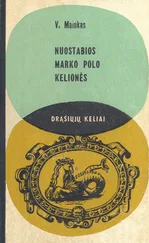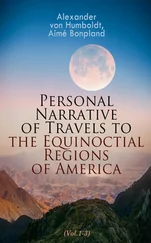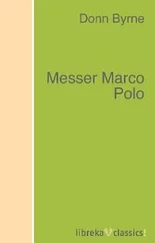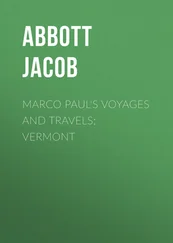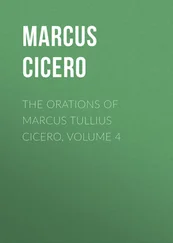On the conclusion of the Punjab campaign, Yule, whose health had suffered, took furlough and went home to his wife. For the next three years they resided chiefly in Scotland, though paying occasional visits to the Continent, and about 1850 Yule bought a house in Edinburgh. There he wrote "The African Squadron vindicated" (a pamphlet which was afterwards re-published in French), translated Schiller's Kampf mit dem Drachen into English verse, delivered Lectures on Fortification at the, now long defunct, Scottish Naval and Military Academy, wrote on Tibet for his friend Blackwood's Magazine, attended the 1850 Edinburgh Meeting of the British Association, wrote his excellent lines, "On the Loss of the Birkenhead ," and commenced his first serious study of Marco Polo (by whose wondrous tale, however, he had already been captivated as a boy in his father's library—in Marsden's edition probably). But the most noteworthy literary result of these happy years was that really fascinating volume, entitled Fortification for Officers of the Army and Students of Military History , a work that has remained unique of its kind. This was published by Blackwood in 1851, and seven years later received the honour of (unauthorised) translation into French. Yule also occupied himself a good deal at this time with the practice of photography, a pursuit to which he never after reverted.
In the spring of 1852, Yule made an interesting little semi-professional tour in company with a brother officer, his accomplished friend, Major R. B. Smith. Beginning with Kelso, "the only one of the Teviotdale Abbeys which I had not as yet seen," they made their way leisurely through the north of England, examining with impartial care abbeys and cathedrals, factories, brick-yards, foundries, timber-yards, docks, and railway works. On this occasion Yule, contrary to his custom, kept a journal, and a few excerpts may be given here, as affording some notion of his casual talk to those who did not know him.
At Berwick-on-Tweed he notes the old ramparts of the town: "These, erected in Elizabeth's time, are interesting as being, I believe, the only existing sample in England of the bastioned system of the 16th century. … The outline of the works seems perfect enough, though both earth and stone work are in great disrepair. The bastions are large with obtuse angles, square orillons, and double flanks originally casemated, and most of them crowned with cavaliers." On the way to Durham, "much amused by the discussions of two passengers, one a smooth-spoken, semi-clerical looking person; the other a brusque well-to-do attorney with a Northumbrian burr. Subject, among others, Protection. The Attorney all for 'cheap bread'—'You wouldn't rob the poor man of his loaf,' and so forth. 'You must go with the stgheam , sir, you must go with the stgheam.' 'I never did, Mr. Thompson, and I never will,' said the other in an oily manner, singularly inconsistent with the sentiment." At Durham they dined with a dignitary of the Church, and Yule was roasted by being placed with his back to an enormous fire. "Coals are cheap at Durham," he notes feelingly, adding, "The party we found as heavy as any Edinburgh one. Smith, indeed, evidently has had little experience of really stupid Edinburgh parties, for he had never met with anything approaching to this before." (Happy Smith!) But thanks to the kindness and hospitality of the astronomer, Mr. Chevalier, and his gifted daughter, they had a delightful visit to beautiful Durham, and came away full of admiration for the (then newly established) University, and its grand locale . They went on to stay with an uncle by marriage of Yule's, in Yorkshire. At dinner he was asked by his host to explain Foucault's pendulum experiment. "I endeavoured to explain it somewhat, I hope, to the satisfaction of his doubts, but not at all to that of Mr. G. M., who most resolutely declined to take in any elucidation, coming at last to the conclusion that he entirely differed with me as to what North meant, and that it was useless to argue until we could agree about that!" They went next to Leeds, to visit Kirkstall Abbey, "a mediaeval fossil, curiously embedded among the squalid brickwork and chimney stalks of a manufacturing suburb. Having established ourselves at the hotel, we went to deliver a letter to Mr. Hope, the official assignee, a very handsome, aristocratic-looking gentleman, who seemed as much out of place at Leeds as the Abbey." At Leeds they visited the flax mills of Messrs. Marshall, "a firm noted for the conscientious care they take of their workpeople. … We mounted on the roof of the building, which is covered with grass, and formerly was actually grazed by a few sheep, until the repeated inconvenience of their tumbling through the glass domes put a stop to this." They next visited some tile and brickworks on land belonging to a friend. "The owner of the tile works, a well-to-do burgher, and the apparent model of a West Riding Radical, received us in rather a dubious way: 'There are a many people has come and brought introductions, and looked at all my works, and then gone and set up for themselves close by. Now des you mean to say that you be really come all the way from Beng_u_l?' 'Yes, indeed we have, and we are going all the way back again, though we didn't exactly come from there to look at your brickworks.' 'Then you're not in the brick-making line, are you?' 'Why we've had a good deal to do with making bricks, and may have again; but we'll engage that if we set up for ourselves, it shall be ten thousand miles from you.' This seemed in some degree to set his mind at rest. … "
"A dismal day, with occasional showers, prevented our seeing Sheffield to advantage. On the whole, however, it is more cheerful and has more of a country-town look than Leeds—a place utterly without beauty of aspect. At Leeds you have vast barrack-like factories, with their usual suburbs of squalid rows of brick cottages, and everywhere the tall spiracles of the steam, which seems the pervading power of the place. Everything there is machinery—the machine is the intelligent agent, it would seem, the man its slave, standing by to tend it and pick up a broken thread now and then. At Sheffield … you might go through most of the streets without knowing anything of the kind was going on. And steam here, instead of being a ruler, is a drudge, turning a grindstone or rolling out a bar of steel, but all the accuracy and skill of hand is the Man's. And consequently there was, we thought, a healthier aspect about the men engaged. None of the Rodgers remain who founded the firm in my father's time. I saw some pairs of his scissors in the show-room still kept under the name of Persian scissors."[35]
From Sheffield Yule and his friend proceeded to Boston, "where there is the most exquisite church tower I have ever seen," and thence to Lincoln, Peterborough, and Ely, ending their tour at Cambridge, where Yule spent a few delightful days.
In the autumn the great Duke of Wellington died, and Yule witnessed the historic pageant of his funeral. His furlough was now nearly expired, and early in December he again embarked for India, leaving his wife and only child, of a few weeks old, behind him. Some verses dated "Christmas Day near the Equator," show how much he felt the separation.
Shortly after his return to Bengal, Yule received orders to proceed to Aracan, and to examine and report upon the passes between Aracan and Burma, as also to improve communications and select suitable sites for fortified posts to hold the same. These orders came to Yule quite unexpectedly late one Saturday evening, but he completed all preparations and started at daybreak on the following Monday, 24th Jan. 1853.
From Calcutta to Khyook Phyoo, Yule proceeded by steamer, and thence up the river in the Tickler gunboat to Krenggyuen. "Our course lay through a wilderness of wooded islands (50 to 200 feet high) and bays, sailing when we could, anchoring when neither wind nor tide served … slow progress up the river. More and more like the creeks and lagoons of the Niger or a Guiana river rather than anything I looked for in India. The densest tree jungle covers the shore down into the water. For miles no sign of human habitation, but now and then at rare intervals one sees a patch of hillside rudely cleared, with the bare stems of the burnt trees still standing. … Sometimes, too, a dark tunnel-like creek runs back beneath the thick vault of jungle, and from it silently steals out a slim canoe, manned by two or three wild-looking Mugs or Kyens (people of the Hills), driving it rapidly along with their short paddles held vertically, exactly like those of the Red men on the American rivers."
Читать дальше


